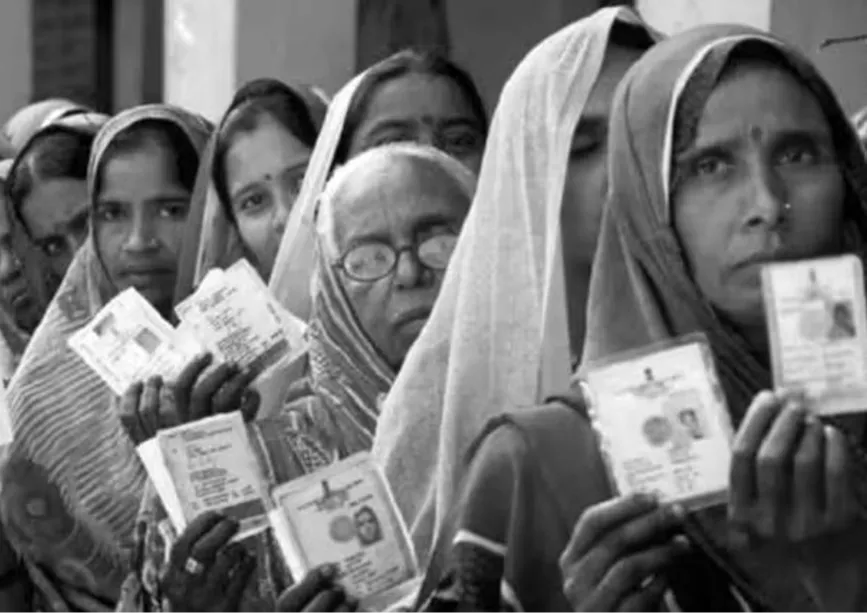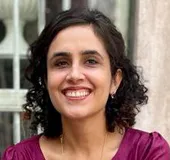-
CENTRES
Progammes & Centres
Location
‘Invest in Women: Accelerate Progress’ is the theme of this year’s International Women’s Day. This is a clarion call with particular resonance for India given the barriers to women’s economic participation. Imagine the extraordinary economic tailwinds that can be generated for India if these barriers are dismantled and women have access to capital and technology and supportive public policy frameworks

In a more just and equal world, there would not be any need for a day of collective global activism to forge women’s equality. And yet, more than a century after the first International Women's Day was celebrated in 1911, we live in a world where the need to keep advocating for women’s rights and equality is higher than ever.
Those in the business of promoting gender equality have various projections on how many years it will take the world to achieve it. According to a report by UN Women, it will take 285 years to close the gender gap. The World Economic Forum predicts that gender parity is at least 131 years away.
Discouraging predictions aside, there is no doubt gender equality is stalling further as the world grapples with converging crises, triggered by the pandemic, climate change, and rising geopolitical conflict, all of which have impacted women more than men as they are more vulnerable to sudden shocks and stresses.
Gender inequality has been perpetuated by global economic, social and political systems and it will require huge financial resources to build a more inclusive world.
It is no wonder that the United Nations has declared the theme for this year’s International Women’s Day as ‘Invest in Women: Accelerate Progress’. The UN recognises investing in women as a human rights issue as well as an economic imperative.
Gender inequality has been perpetuated by global economic, social and political systems and it will require huge financial resources to build a more inclusive world. To close the global gender gap, an estimated $360 billion a year is required until 2030.
Women’s economic participation and opportunity is a fundamental component of achieving gender equality. Around 2.4 billion women of working age in the world do not have the same economic rights as men. In India, the scale of the challenge is much larger, as Indian women continue to face significant barriers to economic participation. Women in India are overrepresented in low-paying, labour-intensive jobs without the benefit of social security. The reason most commonly attributed to this is the unusually high care burden faced by women in the country. Indian women do eight times more care and domestic work than men — higher than all other countries, as the global average is three times higher for women — leading to significantly lower participation in the labour force, among the lowest in the world.
India has the largest economic participation and opportunity gender gap of all countries. There is an opportunity to increase the pool of untapped labour through female labour force participation which currently remains as low as 37 percent compared to the male labour force participation of 76 percent.
Women in India are overrepresented in low-paying, labour-intensive jobs without the benefit of social security.
The gender gap in India’s labour force is attributed largely to conservative social norms. The exclusion of women from paid work, despite increased economic growth, a decrease in fertility rates, and increased enrolment of women in higher education represents the most persistent paradox of recent decades.
For India to harness its demographic dividend, it is essential to invest in women and unlock the gender dividend. This would catalyse inclusive economic growth and boost the GDP. The gender dividend approach requires that India empower its women and girls by continuing to invest in their health and nutrition, social protection, education and skilling, and employment opportunities.
In recent years, however, new priorities for gender lens investing have emerged, along with new stakeholders.
i) Investing in the care economy: The pandemic brought out the historic undervaluation of care and domestic work, which is mainly done by women and has consequences on their financial independence and well-being. Recent large-scale programmes by the government, including Ujjwala Yojana and Jal Jeevan Mission have helped women save time on daily domestic chores. Governments, the private sector and civil society organisations need to work together to build care infrastructure and services across the country to reduce and redistribute care work.
ii) Investing in a gender-inclusive digital economy: The digital economy poses lower barriers for women and allows women entrepreneurs to reach markets worldwide. India has already done the groundworkfor women’s digital financial inclusion through the flagship Jan Dhan Yojana. Under Pradhan Mantri MUDRA Yojana, which extends micro-credit for entrepreneurship, nearly 70 percent of beneficiaries have been female, and 84 percent of loans sanctioned under StartUp India have gone to women. A lot more must be done through public and private financing to provide greater access to credit for women entrepreneurs and to bridge the pervasive gender digital divide.
iii) Investing in building women’s climate resilience: The climate crisis is not gender-neutral. Gender-responsive initiatives to address climate change are needed particularly in areas related to health, agriculture, food security, water, energy and disaster management. Strengthening women-focused investments in climate and disaster resilience is essential. The role of Multilateral Development Banks and Developing Finance Institutions will be key to making climate finance work for women.
By investing in its women, India can build a more resilient and sustainable economy and society.
A compendium of 14 essays curated by the author for International Women’s Day can be read here.
This commentary originally appaered in Moneycontrol.
The views expressed above belong to the author(s). ORF research and analyses now available on Telegram! Click here to access our curated content — blogs, longforms and interviews.

Sunaina Kumar is a Senior Fellow at ORF and Executive Director at Think20 India Secretariat. At ORF, she works with the Centre for New Economic ...
Read More +